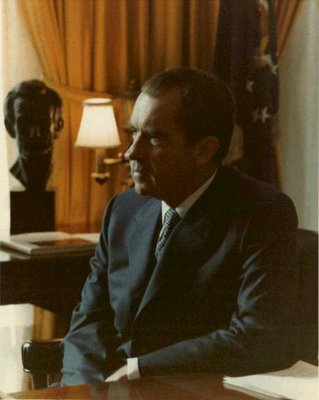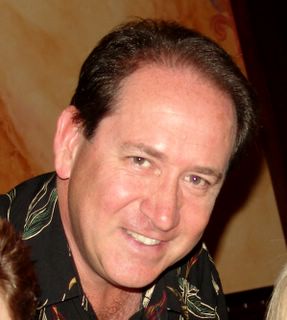Woodward, Leaks and Dubai
Views of Dubai, UAE:







The United Arab Emirates is a constitutional federation of seven emirates; Abu Dhabi, Dubai, Sharjah, Ajman, Umm al-Qaiwain, Ras al-Khaimah and Fujairah. The federation was formally established on 2 December 1971.
The United Arab Emirates (UAE) occupies an area of 83,000 sq km along the south-eastern tip of the Arabian Peninsula. Qatar lies to the west, Saudi Arabia to the south and west, and Oman to the north and east. The capital and the largest city of the federation, Abu Dhabi, is located in the emirate of the same name.
Four-fifths of the UAE is desert, yet it is a country of contrasting landscapes, from awe-inspiring dunes to rich oases, precipitous rocky mountains to fertile plains.
The United Arab Emirates, one of the world's fastest growing tourist destinations, has all the right ingredients for an unforgettable holiday, sun, sand, sea, sports, unbeatable shopping, top-class hotels and restaurants, an intriguing traditional culture, and a safe and welcoming environment.
--From Emirates.org
Bob Woodward does have the inside slant on high-level politics, and let’s not forget we don’t get something for nothing.
As reported by Murray Waas, Sen. Jay Rockefeller, in a letter to Director of National Intelligence John Negroponte, made Woodward's book, Bush at War, Exhibit A in making his case about the Bush administration's "blatant abuse of intelligence information for political purposes."
Waas points out how Bush pushed CIA agents to cooperate with Woodward and quotes a former administration official as saying, "This was something the White House wanted done because they considered it good public relations... This was done for presidential image-making." Huffington Post 2/24/06
And thanks to Arianna for making a whole lot of verbiage easy to digest:
The Pentagon just released its latest quarterly progress report (PDF) on Iraq. The report, entitled "Measuring Stability and Security in Iraq," is 56 pages long. And since I know how busy you all are, let me give you a shortcut:
turn on CNN.
It's. Not. Going. Well.
A very important column on the subject has been posted on National Review Online by conservative icon Bill Buckley. "The kernel here is the acknowledgement of defeat," he writes. "One can't doubt that the American objective in Iraq has failed... The administration has, now, to cope with failure."
I asked where Ramsey Clark was in my last post—“Impeach Bush.org?”
This email arrived same day:
There are now 27 members of the House of Representatives, including John Conyers, the ranking Democrat on the House Judiciary Committee who are supporting a bill, H. Res 635, calling for "a select committee to investigate the Administration's intent to go to war before Congressional authorization, manipulation of pre-war intelligence, encouraging and countenancing torture, retaliating against critics, and to make recommendations regarding grounds for possible impeachment."
Well, 27 out of 450 is better than 0.
Hey Bush ain’t all bad. I’m not all good, for that matter. Just mostly—both of us. In the case of the sale of control over significant operations at six major American ports to the United Arab Emirates, Bush seems to have chosen the ethical, moral, right side of the issue. There are a myriad reasons for him to take this side: loyalty to old friends, backing a policy already in place, standing firm in the face of adversity…--but we’re not going to attach judgment to his decision. More importantly, let’s look at the reaction to this weird turn of events at this time.
Americans are apt to be skeptical of the matter of security being taken over by a company controlled by “Arabs” subsequent to the terrorist events of 9/11/01. I put “Arabs” in quotes to indicate that there is no more hegemony in that group than one would find in the designation of “North American” to indicate a tie between someone from Brooklyn and someone from Oaxaca. Still, we’re nervous about Arabs running a port where all sorts of contraband—bombs, weapons, ammunition—could slide by customs and promote harm for citizens.
If that’s the problem, then we should have been “up in arms” by now over the control of ports in the Los Angeles area alone. In a radio interview I happened to catch on my way to getting my daily dosage of bottled water from the market, the former Chief of Police for the Port of Los Angeles (I have no source on this since I just heard it on the radio) explained that, of the 27 ports in the L.A. area, 4 are controlled by American companies! The rest are owned by several foreign entities including Danish, Korean, Chinese, and more. And NOW we’re worried about Dubai?
Chris Dickey’s rundown of American misplaced prejudice highlights this tale of politics vs. rationale: What Price Xenophobia?
Dubai has a commercial vision—it is a commercial vision—that fits perfectly into the realities of the 21st century. It’s an open city for an open world. The United States, on the other hand, looks increasingly wary, withdrawn, insecure and ill informed. Jingoism, xenophobia and thinly disguised racism may help win votes, but they won’t make the United States any safer.
So Bush is right, and congress is wrong, and fearful Americans need to open their arms to the world, and Muslims are not terrorists, and terrorists have no cause, but love to cause murder and mayhem. And you thought it was easy to pick sides. It’s not that simple.
A visionary leader would see the implications, the nuances, the details, and try to make them clear for the rest of us. A dictator throws out platitudes and hopes whatever sticks on the wall keeps him in power.
"This deal would not go forward, if we were concerned about the security for the United States of America,"—Bush on Port Sale

